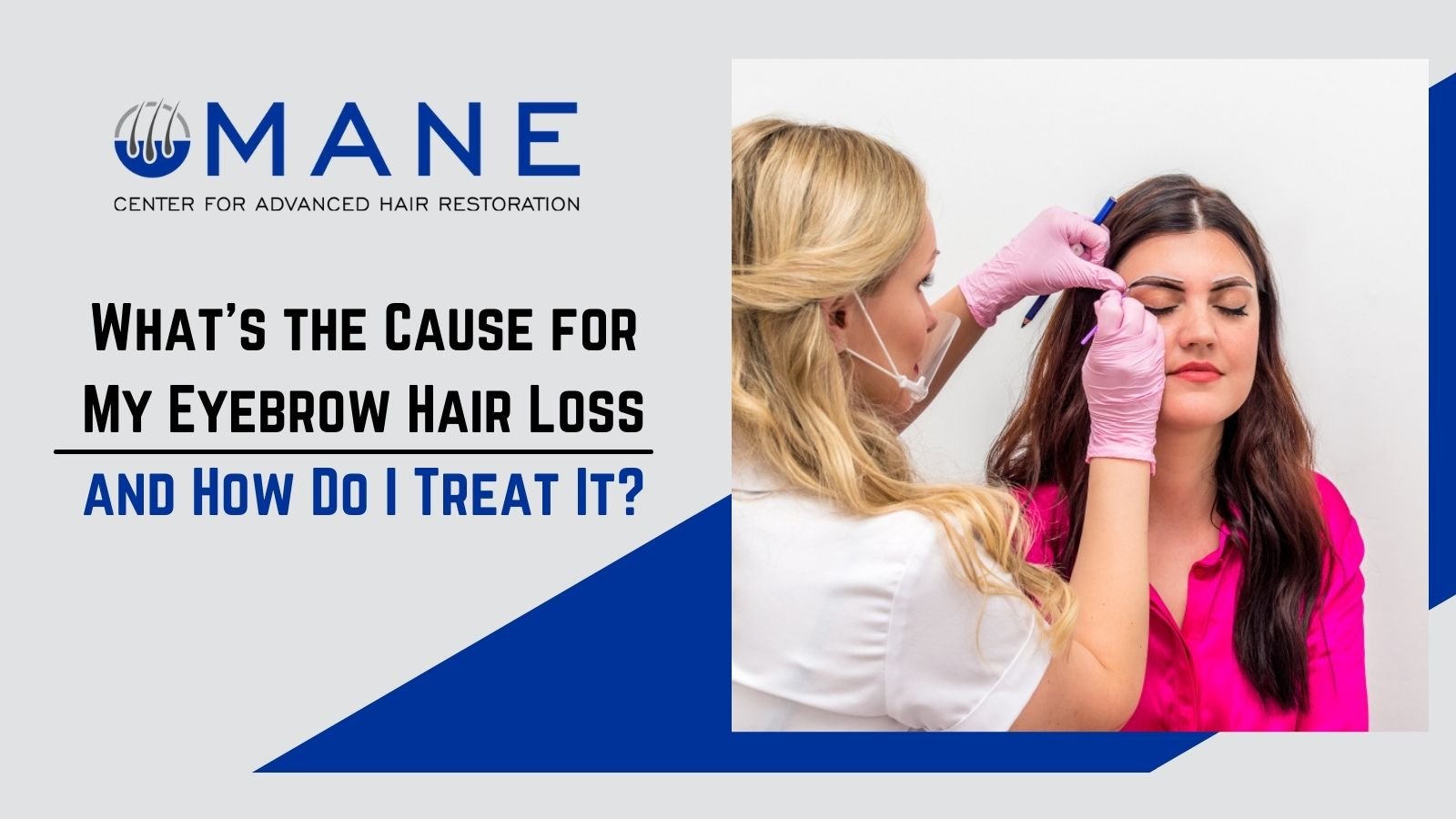When it comes to facial features, eyebrows play a huge role. Eyebrows add a frame to the face, giving it more appeal and character. However, much like the hair on your scalp, eyebrow hair can also thin out or eventually stop growing. Eyebrow hair loss, medically referred to as eyebrow madarosis, is a condition that leads to hair loss in one or both eyebrows and can affect males and females. Eyebrow hair transplant or restoration will help you to recover it.
There can be various causes for diminishing eyebrows, including over-plucking, hormonal changes, nutritional deficiencies, etc. Once the root cause is diagnosed, your doctor can recommend a treatment plan to minimize or reverse the condition. If you are moving ahead for an
eyebrow hair transplant in Chevy Chase, MD, contact our expert hair surgeon for the procedures with a free hair transplant consualtion.
Some causes that can trigger eyebrow hair loss include:
Nutritional deficiencies
Our food intake can impact our hair and skin health significantly. The body needs nutrients and other energy sources to sustain healthy hair growth. Deficiencies of nutrients and vitamins like biotin, zinc, Vitamin C, E, B-12 and D, iron, and omega-3 fatty acids can affect hair loss.
Autoimmune diseases
Autoimmune conditions like alopecia areata, lupus, alopecia universalis, and frontal fibrosing alopecia can lead to eyebrow hair loss. In autoimmune diseases, the immune system attacks its own healthy cells, including the cells that influence hair growth.
Thyroid disorders
Eyebrow hair loss can be linked to thyroid imbalance. Conditions like hyperthyroidism and hypothyroidism occur when the body creates too much or too little thyroid hormone, leading to an array of symptoms, including eyebrow hair loss.
Persistent Plucking
Over-plucking too often can trigger physical trauma and weaken the hair follicles, eventually causing the hair to stop growing.
Skin disorders
Certain skin conditions can lead to symptoms like itching, irritation, dry or flaky skin, or inflammation around the eyebrows, affecting the hair follicles and inhibiting hair growth. Such skin conditions include psoriasis, contact dermatitis, seborrheic dermatitis, and eczema.
Other than these, factors like stress, anxiety, pregnancy, childbirth, aging, and certain other diseases like leprosy can cause hair loss, including eyebrow hair loss.
Treatment for eyebrow hair loss
Once your doctor determines the root cause of your eyebrow hair loss, suitable treatment options can be discussed. Some of these include:
Minoxidil
Also known as Rogaine, Minoxidil is an over-the-counter, FDA-approved topical solution known to restore hormonally inhibited hair growth when used over several months.
Corticosteroids
Corticosteroids are anti-inflammatory drugs used to treat various conditions, including eczema, psoriasis, alopecia areata, and dermatitis. In turn, these cured conditions will encourage normal hair production afterward.
Nutrition supplements
Supplementing the body with omega-3 fatty acids and antioxidants can effectively tackle hair loss by offsetting any nutritional deficiencies.
Castor Oil
Castor oil has properties that nourish the hair follicles and promote the growth of thicker and healthier hair.
Acupuncture
Acupuncture can act as an alternative therapy to treat eyebrow hair loss. It stimulates blood circulation, thereby restoring hair follicles and reducing any inflammation that may be inhibiting hair growth.
Eyebrow transplant
Similar to a hair transplant procedure, an eyebrow transplant involves extracting and transplanting healthy hair grafts into the sparse region of the eyebrow.
Eyebrow hair restoration/transplant procedures are available for men and women.
If you are considering getting an eyebrow hair transplant in Chevy Chase, MD, contact our expert professionals at the Mane Center for Advanced Hair Restoration. Our team includes some of the
best hair transplant doctors in Chevy Chase, MD, to guide you with the best treatment course.


